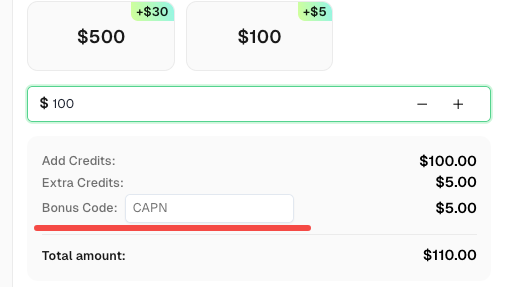What Is Data Harvesting: Latest News on Web Scraping in 2024

Rajinder Singh
Deep Learning Researcher
15-Mar-2024
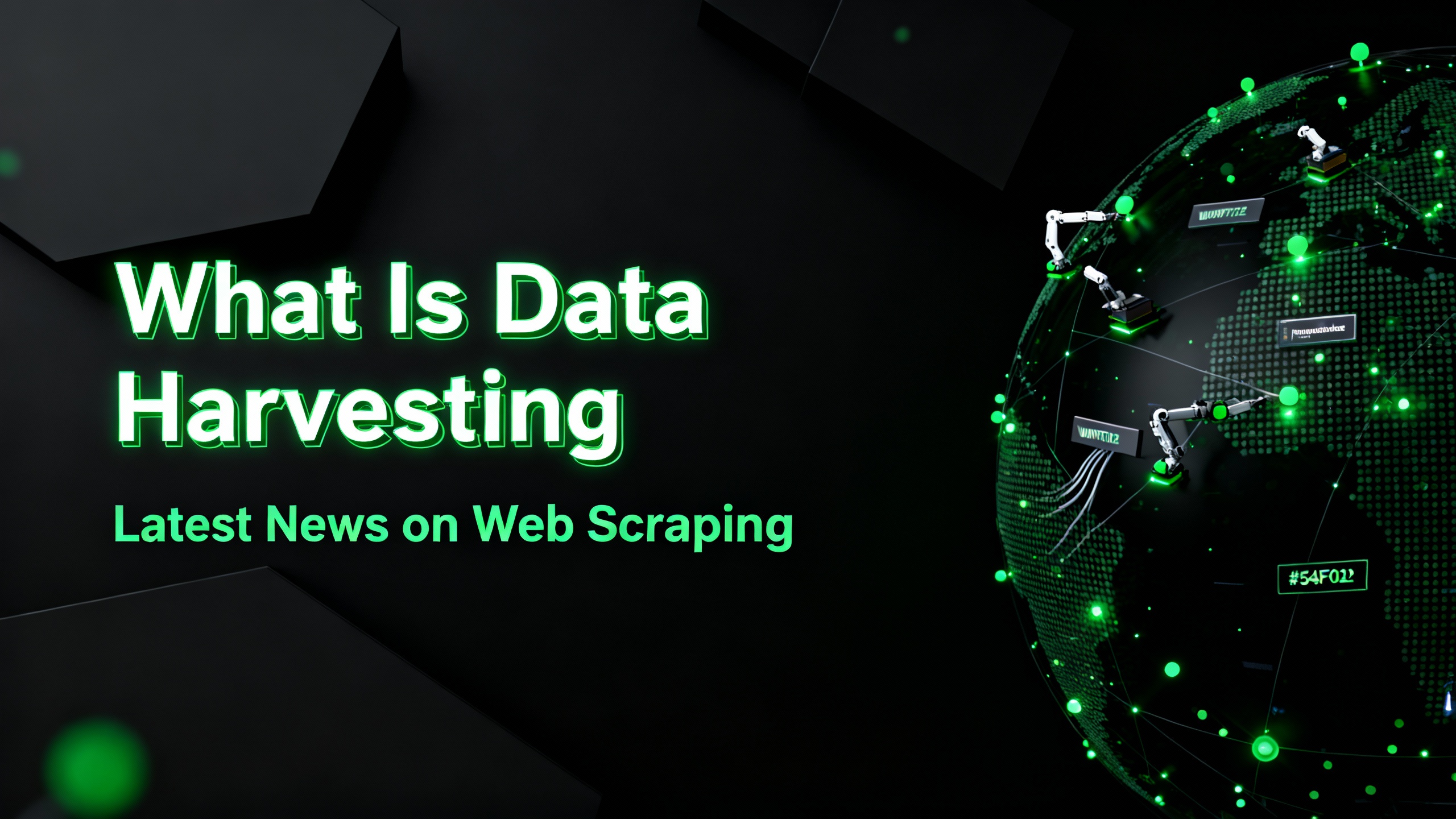
In the digital age, valuable information is scattered across numerous sources, from websites to documents of various formats. Imagine the power of collecting and leveraging this data for your specific objectives. This is precisely what data harvesting entails!
This article will provide you with a comprehensive understanding of data harvesting, its applications, the process involved, the challenges faced, and the tools to overcome them. Let's dive in!
Redeem Your CapSolver Bonus Code
Don’t miss the chance to further optimize your operations! Use the bonus code CAPN when topping up your CapSolver account and receive an extra 5% bonus on each recharge, with no limits. Visit the CapSolver Dashboard to redeem your bonus now!
Understanding Data Harvesting
Data harvesting is the process of gathering information from one or more sources, such as web pages, text documents (e.g., PDFs, Word files), tabular files (e.g., spreadsheets, CSV files), and existing data sets.
In the context of the web, data collection is often referred to as "web scraping," which involves extracting data from websites and web pages. Once the desired data is collected, it is aggregated, cleaned, and exported into user-friendly formats, enabling easy access and analysis by your team members. Business users can then leverage this data for various purposes, such as user profiling, decision-making, and gaining valuable insights.
As of 2024, advancements in automated technologies and artificial intelligence (AI) have made data harvesting more efficient and accessible, encompassing online and local data retrieval, as well as biometric data acquisition.
Applications and Use Cases of Data Harvesting
Data harvesting plays a crucial role in tasks related to various industries and applications. Users of all types and expertise levels utilize it for different end goals. Here are some common use cases:
- Individuals: Tracking online prices for better deals, boosting productivity, monitoring job openings, enhancing personal organization, and improving efficiency in daily tasks.
- Companies: Analyzing customer behavior, refining marketing strategies, enhancing product offerings, making informed decisions, streamlining operations, and gaining a competitive edge.
- Governments: Engaging in national security, formulating public policies, allocating resources efficiently, assessing public sentiment, and adapting to emerging social needs.
Data harvesting is also invaluable in fields such as medical research, personalized patient care, social media monitoring, and campaign analysis for marketers.
The Data Harvesting Process
Here are the general steps involved in the data harvesting process:
- Identify data sources: Locate relevant data sources for your specific goal, such as websites, data sets, or repositories containing the desired information.
- Use a data extraction tool: Utilize a tool to simplify the process of extracting data from source documents. Depending on your requirements, this could be a data parsing library, a no-code tool, or a desktop application. Automated tools make data harvesting faster and more accurate.
- Export data in a convenient format: After extracting the data, transform it into a format suitable for your needs. The most common formats for integration into analytical tools are CSV, XML, and JSON. You may also need to store the collected information in a database.
Let's take a concrete example to better understand how this process works. Take crawling captcha data as an example:
To begin, ensure that you have Python installed on your system. Next, install the following libraries using pip:
- Requests: Used to send HTTP requests to the captcha website.
- BeautifulSoup: A library for parsing HTML and extracting data.
Making requests to captcha:
In order to scrape data from captcha, we need to send HTTP requests to the website and retrieve the HTML content of the pages. We can use the Requests library to achieve this. Here's an example of making a request to retrieve the HTML of an captcha product page: reviewing the data.
python
import requests
url = "https://www.captcha.com/product-page-url"
response = requests.get(url)
html_content = response.textNow we have the HTML content of the page and can proceed with parsing and extracting data.
Parsing the HTML with BeautifulSoup:
Once we have obtained the HTML content of a page, we can use BeautifulSoup to parse the HTML and extract the desired data. This could include product information, reviews, prices, and more. Here's an example of using BeautifulSoup to extract the title of a product from an captcha page:
python
from bs4 import BeautifulSoup
soup = BeautifulSoup(html_content, "html.parser")
title = soup.find("span", id="productTitle").text.strip()Now we have extracted the product title and can continue with further data extraction. See more for the detailed article
Choosing the Right Data Extraction Tool
With the increasing complexity of captcha measures, choosing the right tool for data extraction has become critical. Only tools that help you avoid getting blocked can guarantee efficient and effective results. There are two main categories of data extraction tools:
For everyone: Browser extensions and desktop applications that allow data retrieval without code. While accessible to users of any skill level, these tools often come with limitations, such as being error-prone, easily detectable by sites, and offering little to no customization.
For developers: Data parsing libraries that can extract data from various sources, such as HTML, CSV, and text documents. Advanced solutions offer ways to customize requests and avoid bot detection.
While no-code tools are suitable for basic data extraction, they lack the flexibility needed for more complex tasks. For reliable and effective data harvesting, developers often need to define custom scraping logic in automated scripts.
However, custom scripts alone are not enough to build an effective data collection process. To truly solve captcha, you need a powerful tool like CapSolver. As a leading captcha solving service, CapSolver provides APIs and extensions to programmatically or hand-free to solve various types of CAPTCHAs when you will encounter while web scraping, including those used by advanced systems. By seamlessly integrating CapSolver into your data harvesting workflow, you can overcome these challenges and ensure successful data retrieval.
Conclusion
This article has provided you with a comprehensive understanding of data harvesting, its applications, the process involved, the challenges faced, and the tools to overcome them.By leveraging the power of data harvesting and tools like CapSolver, you can unlock valuable insights, gain a competitive edge, and make informed decisions for your business or personal endeavors. If you have a high demand for CAPTCHA solutions, you can contact CapSolver through customer service or Telegram to get a surprise offer.
Compliance Disclaimer: The information provided on this blog is for informational purposes only. CapSolver is committed to compliance with all applicable laws and regulations. The use of the CapSolver network for illegal, fraudulent, or abusive activities is strictly prohibited and will be investigated. Our captcha-solving solutions enhance user experience while ensuring 100% compliance in helping solve captcha difficulties during public data crawling. We encourage responsible use of our services. For more information, please visit our Terms of Service and Privacy Policy.
More
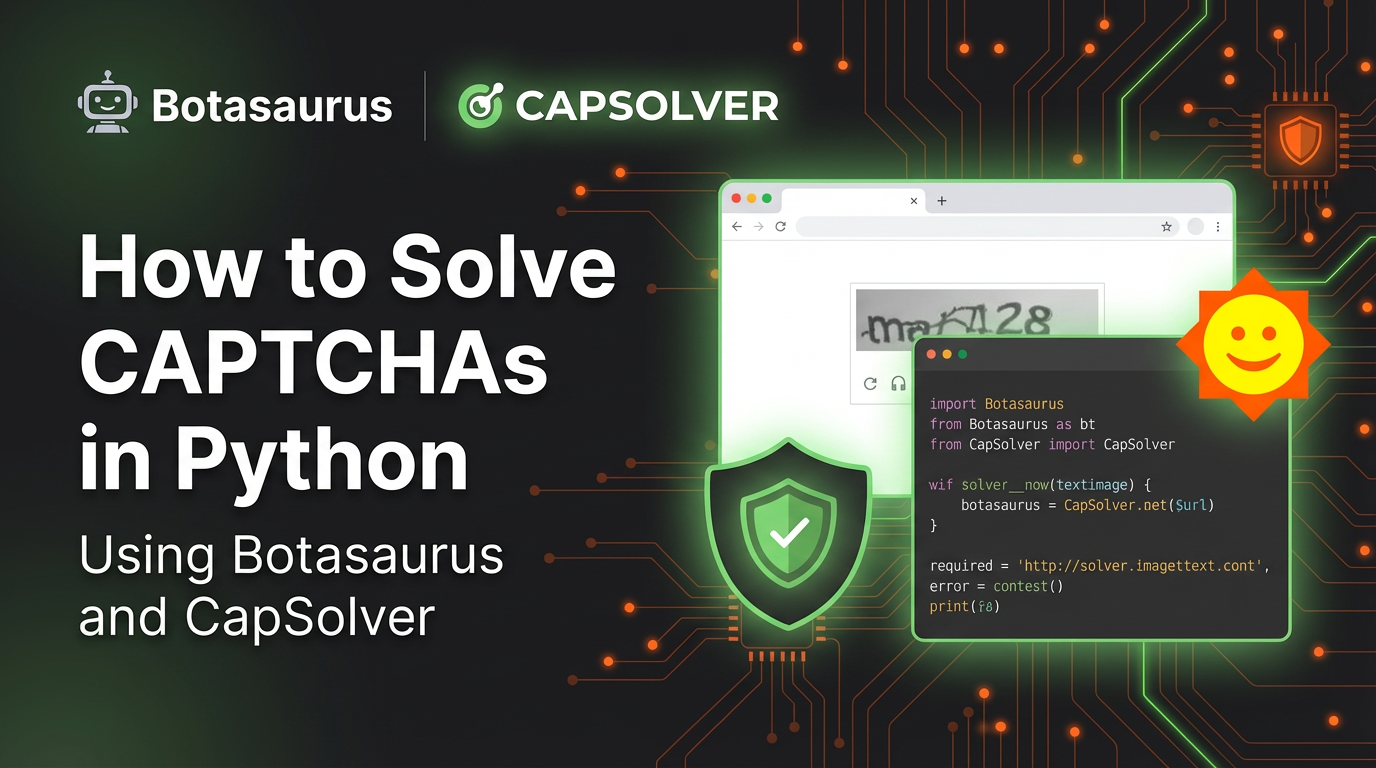
How to Solve CAPTCHAs in Python Using Botasaurus and CapSolver (Full Guide)
Learn to integrate Botasaurus (Python web scraping framework) with CapSolver API to automatically solve reCAPTCHA v2/v3 and Turnstile.

Lucas Mitchell
12-Dec-2025
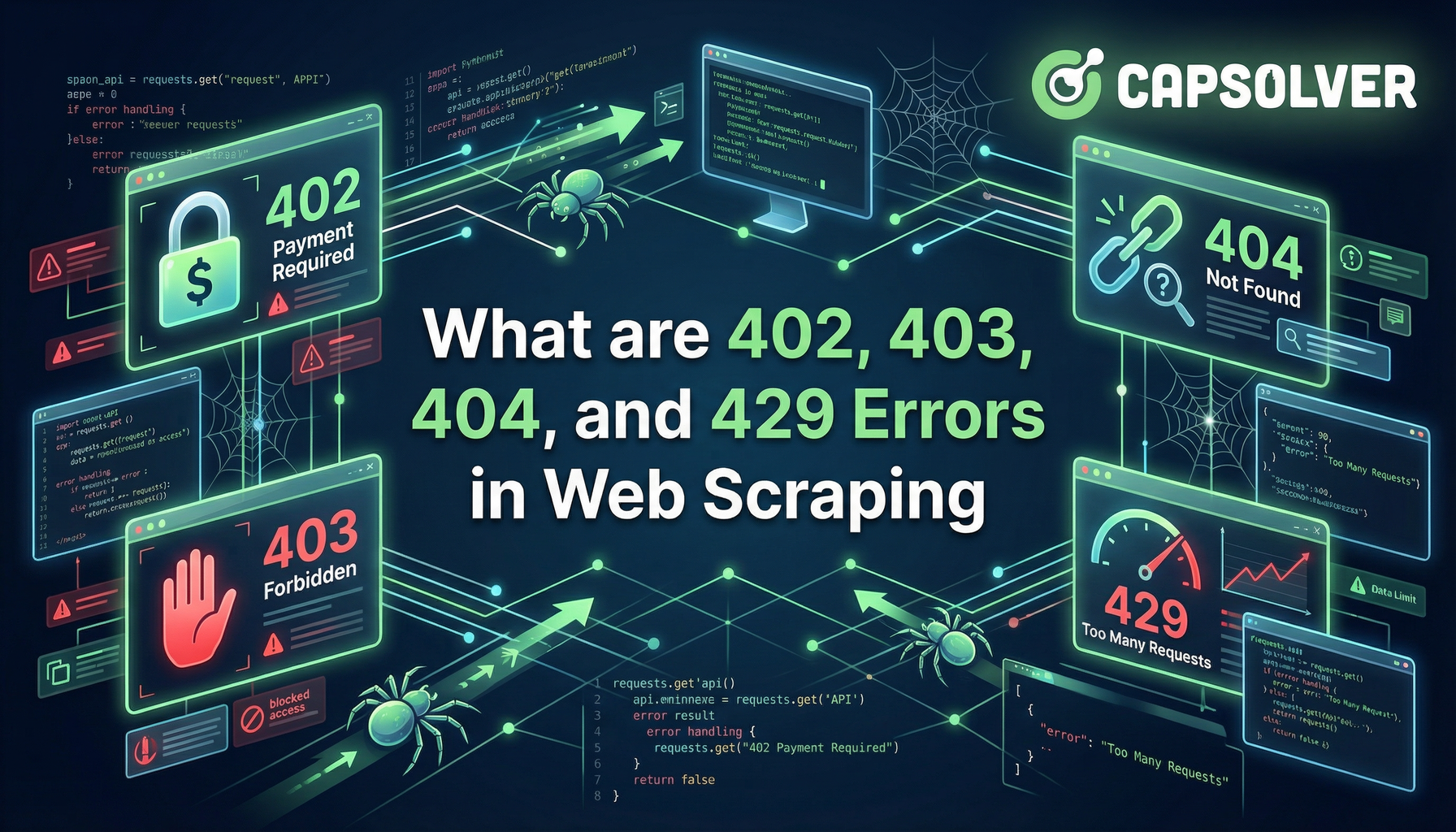
What are 402, 403, 404, and 429 Errors in Web Scraping? A Comprehensive Guide
Master web scraping error handling by understanding what are 402, 403, 404, and 429 errors. Learn how to fix 403 Forbidden, implement rate limiting error 429 solutions, and handle the emerging 402 Payment Required status code.

Sora Fujimoto
11-Dec-2025
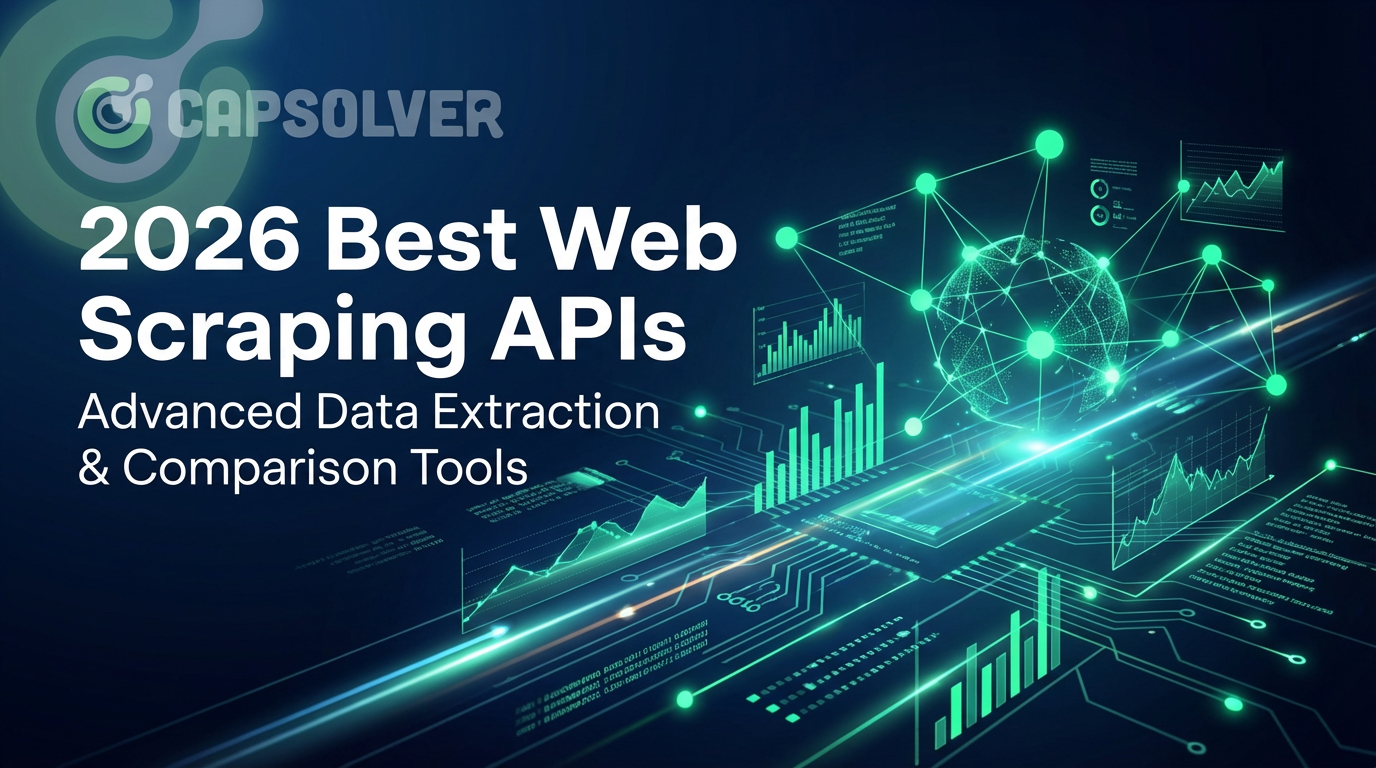
Best Web Scraping APIs in 2026: Top Tools Compared & Ranked
Discover the best Web Scraping APIs for 2026. We compare the top tools based on success rate, speed, AI features, and pricing to help you choose the right solution for your data extraction needs.

Ethan Collins
11-Dec-2025
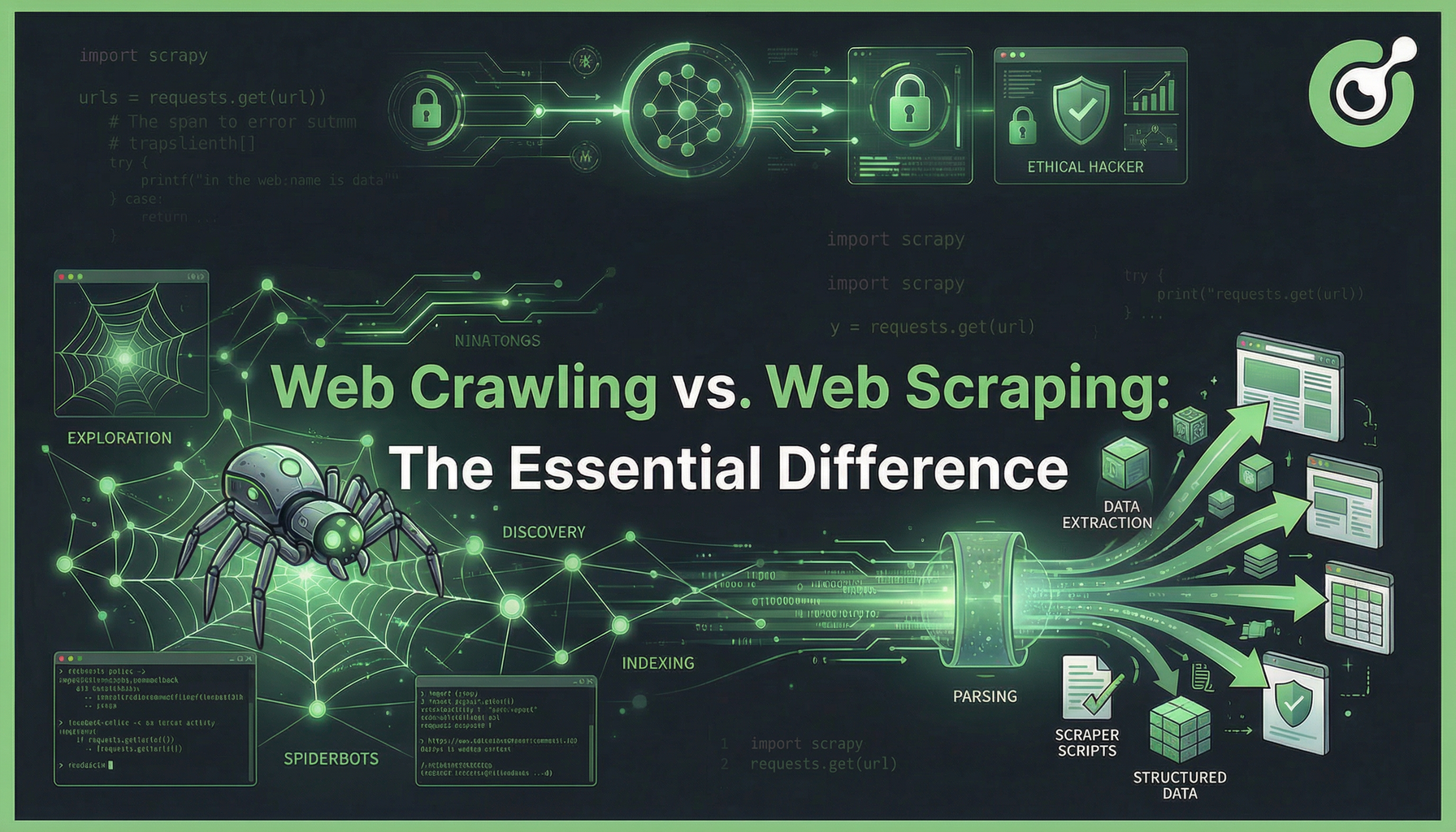
Web Crawling vs. Web Scraping: The Essential Difference
Uncover the essential difference between web crawling and web scraping. Learn their distinct purposes, 10 powerful use cases, and how CapSolver helps bypass AWS WAF and CAPTCHA blocks for seamless data acquisition.

Sora Fujimoto
09-Dec-2025
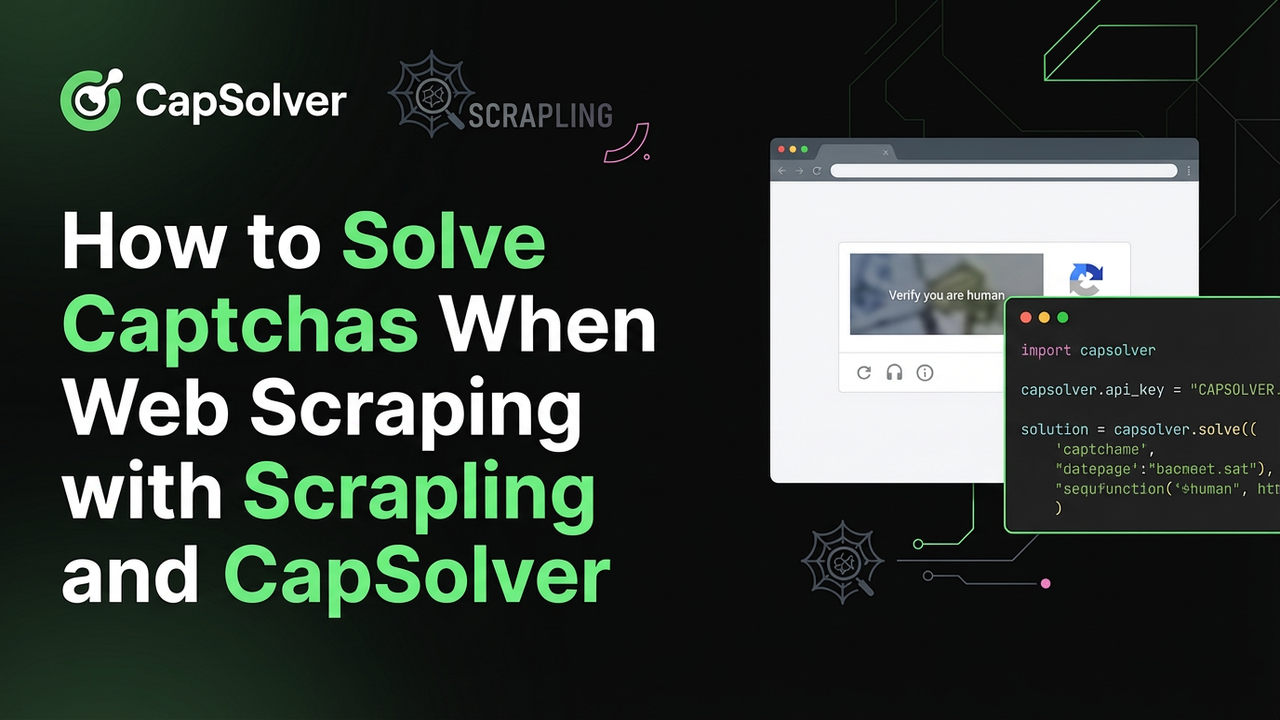
How to Solve Captchas When Web Scraping with Scrapling and CapSolver
Scrapling + CapSolver enables automated scraping with ReCaptcha v2/v3 and Cloudflare Turnstile bypass.

Ethan Collins
04-Dec-2025
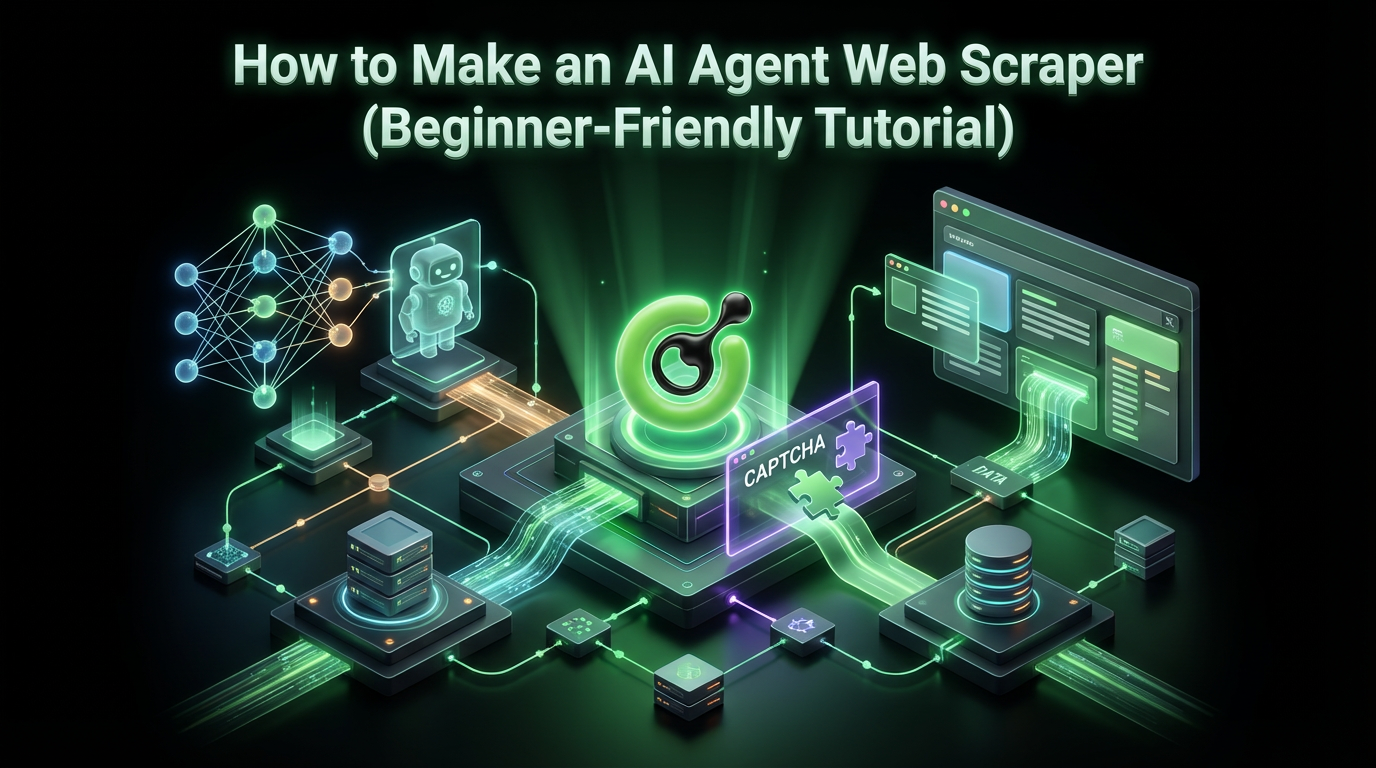
How to Make an AI Agent Web Scraper (Beginner-Friendly Tutorial)
Learn how to make an AI Agent Web Scraper from scratch with this beginner-friendly tutorial. Discover the core components, code examples, and how to bypass anti-bot measures like CAPTCHAs for reliable data collection.

Lucas Mitchell
02-Dec-2025


